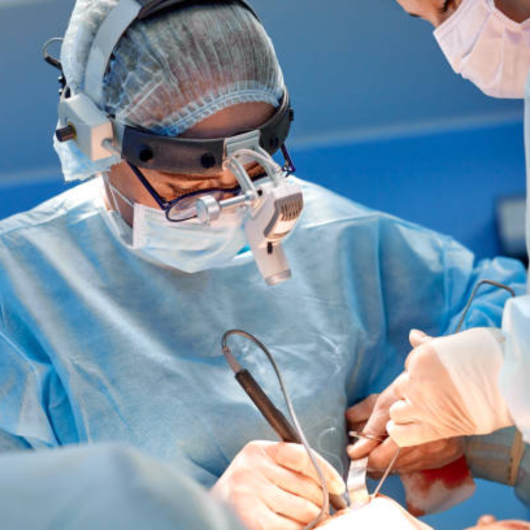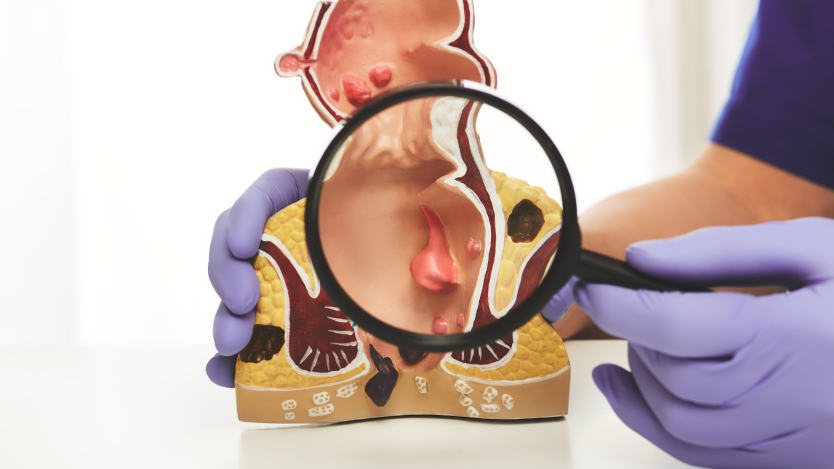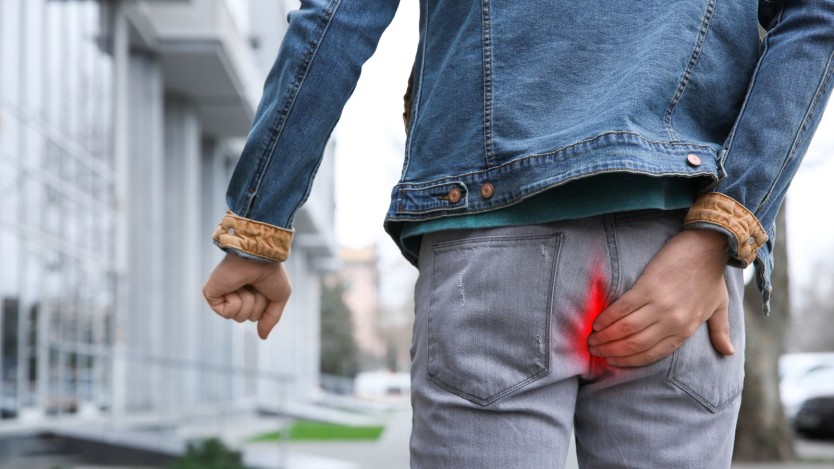
Rubber Band Ligation for Haemorrhoids
- Hospital stay: Outpatient surgery
- Surgery time: 20 - 40 min.
- Anaesthesia: Local
- Surgical technique: Haemorrhoidal band ligation
- Full recovery: 10 - 15 days
Fixed price
1.890 €
All included
Consult financing conditions
Financing is available* for amounts over €150, and can be financed from 3 and to 24 months. The financing process is subject to approval by the collaborating financial entities. For further information on the financing conditions, please do not hesitate to contact us at +34 91 141 33 56 or through this contact form. Our Patient Service department will provide you with the information you need and explain the financing process. Find additional information about funding in the following link. *Operarme’s team manages the funding of surgical procedures and medical tests. The financing management of dental services is only performed at Caser Dental Clinics.
What do our patients think?
What is included?
-
Free surgical consultation
Ask for a free and immediate surgical consultation with our specialist in General Surgery and Digestive System.
Meet the doctor on a face-to-face consultation to assess your hemorrhoids problem, and then decide together your best options for surgical treatment
-
Preoperative study
A complete pre-operative study will be performed: including a blood analysis, electrocardiogram and chest-X rays.
Also a consultation with the Anaesthetist will be held to see if you are suitable for the surgery.
-
Surgical procedure expenses and fees
- Reservation and booking of the operation room, instruments, equipment,consumables and medication of the surgical procedure.
- Medication (non cytostatic nor monoclonal antibody or derivatives), medical gases, Stay in the postoperative recovery room, monitorization and necesary treatments, Pathological anatomy, haemotherapy-blood transfusions.
- Surgeon, assistant and anaesthetist fees until your medical discharge.
If there was any special need in the surgical process, by express indication of the doctor, the client will be informed of the variation in the price prior to surgery, and must be accepted to continue with the process.
-
Outpatient surgery
Rubber band ligation for haemorrhoids is an outpatient procedure in which the patient goes home on their own feet immediately after the surgery.
-
Medical complications insurance
Rubber band ligation for haemorrhoids includes a medical complications insurance covering possible eventualities that may affect the patient during the surgical procedure and 30 days after surgical intervention, including re-intervention if needed.
Medical complications insurance covers related surgical procedure expenses such as:
- Increase in your hospital stay after surgery.
- Hospital admission after hospital discharge due to medical complications.
- Re-intervention and hospital stay up to the established amount established in the Particular Conditions.
Under no circumstances this insurance will cover emergency visits or medical review consultations after hospital discharge.
If you woud like to receive more information about this service, please contact our patient service department.
-
Post-surgical consultations
One post-surgical consultation included in the fixed price of this surgery.
If more consultations are necessary, they must be managed through the Operarme patient care team and paid at a preferential price. For more information or request additional consultation, contact our patient service team.
Post-surgical consultations NOT included in the closed price of the surgical process have a price of €39 per appointment.
Information of Rubber Band Ligation for Haemorrhoids
- 01. All the information about the rubber band ligation for haemorrhoids
- 02. What are internal haemorrhoids?
- 03. What are the causes of internal haemorrhoids?
- 04. Symptoms of internal haemorrhoids
- 05. Why is rubber band ligation treatment necessary?
- 06. Request a surgical assessment consultation with a proctology specialist
- 07. Consultation with the proctologist
- 08. Preoperative assessment and anaesthesia for rubber band ligation of haemorrhoids
- 09. Step-by-step: Rubber band ligation of haemorrhoids
- 10. Recovery after rubber band ligation of haemorrhoids
- 11. What are the advantages and risks of rubber band ligation for haemorrhoids?
- 12. Benefits of rubber band ligation for haemorrhoids with Operarme
- 13. Cost of haemorrhoid surgery with rubber bands at Operarme
01. All the information about the rubber band ligation for haemorrhoids
Haemorrhoids appear due to various factors, including poor diet, persistent diarrhoea, constipation, among others. The discomfort caused by haemorrhoids, commonly referred to as piles, can be relieved with creams or other conservative treatments when the condition is mild. However, in more severe cases, haemorrhoid surgery (removal) is the only definitive treatment.
Rubber band ligation is a procedure in which the haemorrhoid is tied at its base with elastic bands, cutting off its blood supply.
This treatment is only recommended for cases involving internal haemorrhoids.
On this page, we explain everything you need to know about haemorrhoids, their types and causes, as well as the banding treatment, which you can consider if you want to resolve the discomfort caused by piles as soon as possible.
02. What are internal haemorrhoids?
Haemorrhoids, also known as piles, are swollen veins in the anus and the lower part of the rectum, similar to varicose veins. There are several causes of haemorrhoids, although the specific origin is often unknown.
Haemorrhoids may develop as a result of straining during bowel movements or due to increased pressure in those veins during pregnancy.
Haemorrhoids can be located inside the rectum (internal haemorrhoids) or may appear under the skin around the anus (external haemorrhoids).

Internal haemorrhoids are dilated veins inside the rectum that are not visible at the anus. In most cases, they are discovered when defecating, as bright red blood is noticed on the stool or toilet paper. They may also cause itching and discomfort around the anus, making it difficult to go to the toilet.
Internal haemorrhoids are located within the rectum. Generally, this type of haemorrhoid does not cause symptoms in its early stages. Haemorrhoids may remain inside the anus or protrude when straining to defecate. Treatment should be prescribed by a proctologist and may include creams, medication, and sitz baths.
Occasionally, a blood clot can form in a haemorrhoid, a condition known as haemorrhoidal thrombosis. While not dangerous, it can be extremely painful and may sometimes require a small incision to drain the blood.
Types of internal haemorrhoids
Internal haemorrhoids can be classified according to their stage, which determines the most appropriate treatment for eliminating them.
The grades of piles are as follows:
- Grade 1 internal haemorrhoids: these do not protrude from the anus. Generally, they do not cause discomfort or symptoms.
- Grade 2 internal haemorrhoids: these may protrude from the anus but return inside on their own. They often cause mild discomfort or light bleeding during bowel movements.
- Grade 3 internal haemorrhoids: these protrude from the anus and need to be carefully pushed back inside. They commonly cause discomfort during defecation, intermittent pain in the area, burning sensations, and bleeding.
- Grade 4 internal haemorrhoids: these remain permanently outside the anus and cannot be manually reduced. They cause intense pain and bleeding during bowel movements. This is the most severe and troublesome stage, and surgical removal is usually the most suitable solution.
Are you considering treating your haemorrhoids with rubber band ligation? Click on the image below to request a surgical assessment consultation with our specialists.

Are you interested in rubber band ligation for haemorrhoids?
Request a free and immediate appointment with our General Surgery specialists and book your surgery date
03. What are the causes of internal haemorrhoids?
The veins around the anus tend to stretch under pressure and may become enlarged or swollen.
Swollen veins (haemorrhoids) can develop due to increased pressure in the lower rectum as a result of:
- Straining during bowel movements
- Sitting for long periods on the toilet
- Chronic diarrhoea or constipation
- Obesity
- Circulatory problems
- Genetic predisposition
- Pregnancy
- Anal intercourse
- A low-fibre diet
Haemorrhoids are more likely to occur with age, as the tissues supporting the veins in the rectum and anus may weaken and shrink over time.
Haemorrhoids can develop due to a combination of factors such as a sedentary lifestyle, low-fibre diet, or associated intestinal conditions.
Risk factors for developing internal haemorrhoids
Below is a list of risk factors that may contribute to the development of haemorrhoids. It’s important to note that having one of these factors does not necessarily mean haemorrhoids will develop, but several combined can increase the likelihood:
- Sedentary lifestyle
- Pregnancy – adds pressure to the rectum, increasing the risk of haemorrhoids
- Poor bowel habits – spending too long on the toilet or straining when defecating contributes to inflammation of the haemorrhoidal plexus
- Smoking – affects blood circulation
- Hereditary factors – people with a family history of haemorrhoids are more likely to develop them
- Associated medical conditions – such as high blood pressure, inflammatory bowel diseases, or circulatory disorders
- Obesity or being overweight – puts constant pressure on the anal canal, promoting vein dilation and haemorrhoid formation
- Low-fibre diets – lacking fruits and vegetables can lead to constipation and hardened stools
- Anal sex – especially when done frequently or without adequate lubrication and care, can cause dilation and inflammation of the haemorrhoidal plexus
- Chronic constipation – causes irritation in the anal canal, promoting haemorrhoid development
04. Symptoms of internal haemorrhoids
The symptoms of internal haemorrhoids — particularly bleeding — can be mistaken for other conditions, such as an anal fissure. Nevertheless, the most common signs of this condition include:
- Bleeding. It is common to notice bright red blood on toilet paper in the early stages. A key difference to note is that bright red blood typically indicates more recent bleeding, whereas darker, thicker blood suggests that the haemorrhoids have been present for longer and are located higher up in the anal canal. This may indicate chronic haemorrhoids, which could eventually require surgery.
- Pain. Pain usually appears when the condition has progressed to more advanced stages (grades 3 and 4), and the haemorrhoidal plexuses become trapped outside the anus by the sphincter. This may lead to complications such as thrombosed haemorrhoids.
- Burning sensation around the anus. In cases of chronic haemorrhoids, persistent itching and a feeling of heaviness in the area are common, especially when sitting. This is one of the most bothersome symptoms.
The most common signs of haemorrhoids are bleeding, pain, and a continuous burning or itching sensation in the area.
In some cases, internal haemorrhoids may cause a small lump to appear at the anus during bowel movements, which usually retracts on its own afterwards.
05. Why is rubber band ligation treatment necessary?
As previously mentioned, rubber band ligation aims to eliminate internal haemorrhoids and the problems they cause. This treatment is recommended for patients who, like you, may be suffering from grade 2 or grade 3 internal haemorrhoids, along with the associated discomfort, pain, and bleeding.
It is not recommended for patients with grade 4 haemorrhoids, mainly due to the high number of cases in which the treatment has failed. In such situations, surgical removal is considered the most appropriate option.

06. Request a surgical assessment consultation with a proctology specialist
If you or someone close to you is experiencing discomfort caused by internal haemorrhoids and want to return to normal as soon as possible, at Operarme we offer a surgical assessment consultation with our proctologists, specialists in diseases affecting the anus and rectum.
Similarly, if you are certain you want to undergo rubber band ligation treatment, or if you are looking for the technique that best suits your case, you can request an immediate surgical assessment appointment.
To request this surgical assessment consultation with a proctologist, you can do so through our website by clicking any of the ‘Request Appointment’ buttons, filling out the contact form, or by calling at +34 91 141 33 56 to speak directly with our patient service department.

Are you interested in rubber band ligation for haemorrhoids?
Request a free and immediate appointment with our General Surgery specialists and book your surgery date
07. Consultation with the proctologist
On the day of your appointment with the proctologist, you should bring along any medical tests or documentation you have related to your haemorrhoids.
This will allow the specialist to gather as much information as possible in order to assess the severity of your case and determine whether rubber band ligation is necessary, or if a different treatment would be more suitable.
During the consultation, you will have the opportunity to ask any questions you may have about the procedure, so that you are fully informed when deciding whether or not to proceed with the operation.
In addition, during the consultation the doctor will examine the haemorrhoids and explain how the rubber band ligation treatment will be carried out. If you decide to proceed with the treatment, a date will be set for the preoperative assessment and the procedure itself.
If you agree to go ahead, our patient service team will get back in touch with you to explain all the steps to follow and will coordinate the next stages, such as the preoperative tests (if necessary), payments, the date of the operation, and so on. This way, you won’t need to worry about anything except your health.
08. Preoperative assessment and anaesthesia for rubber band ligation of haemorrhoids
In most cases, no preoperative tests are required for rubber band ligation of haemorrhoids, as it is a quick and outpatient procedure. Likewise, no prior preparation involving enemas or the use of anaesthesia is necessary.
However, if any tests are requested, the most common are:
- Electrocardiogram (ECG): This test allows the doctor to assess the patient’s heart health.
- Full blood test: This includes a complete blood count, a basic coagulation study, kidney function tests, and glucose levels. A urine test will also be carried out to rule out infection.
09. Step-by-step: Rubber band ligation of haemorrhoids
Rubber band ligation of haemorrhoids is considered an outpatient procedure, which means you will be able to go home the same day without the need for hospital admission.
This treatment involves placing a small rubber band above the haemorrhoidal tissue to cut off its blood supply. As a result, the tissue dries out and eventually falls off, effectively removing the haemorrhoid.
A maximum of three haemorrhoidal bundles can be treated per session.
On the day of the procedure, you will go to the hospital with all the required documentation, which you will need to hand in at admissions. You will then be taken to the waiting area until the proctologist calls you in to carry out the treatment.

When the time comes, you will be taken to the consultation room where the specialist will once again explain the steps involved in applying the rubber bands. You will then be asked to lie on the examination table so that the procedure can begin.
Rubber band ligation for haemorrhoids involves the following steps:
- Once positioned on the table in the left lateral decubitus position, the proctologist will insert a viewing instrument (anoscope) into the anus to visualise the inside of the anal canal and lower rectum.
- The haemorrhoid is then grasped with a ligation device, gently suctioned above the dentate line, and a small rubber band is placed around the base of the haemorrhoid.
- If additional haemorrhoids are present, the same procedure is repeated for each one.
- Once all necessary rubber bands have been placed, the instruments are removed and the procedure is complete.
- After treatment, the haemorrhoid becomes necrotic and typically falls off within about a week.
Once the bands have been applied, the proctologist will provide you with post-operative instructions to ensure a successful recovery and minimise the risk of complications.
10. Recovery after rubber band ligation of haemorrhoids
After the procedure has been completed, you will be able to return home the same day to begin your recovery. To ensure this recovery period is as short and comfortable as possible, the following general guidelines should be followed:
- Do not take aspirin during the two weeks following the procedure, as it may increase the risk of bleeding.
- Avoid taking medications or foods with a laxative effect that speed up bowel movements or result in loose stools, as this could interfere with healing and cause complications.
- Take daily sitz baths to help relax the muscles in the area and allow bowel movements to pass more easily and with less straining.
To aid and speed up the recovery, the following tips are also recommended:
- You may take paracetamol (acetaminophen) to help manage any pain.
- Avoid strenuous physical activities, such as lifting heavy objects, as much as possible.
These recommendations should be followed for at least a week, which is generally the time needed for the wound to heal and the haemorrhoid to fall off.
Recovery after rubber band ligation of haemorrhoids is usually complete within 10 to 15 days.
Please note that these are general guidelines. Your proctologist will give you specific post-treatment instructions tailored to your case. If you follow their advice, there should be no reason for the procedure to be unsuccessful.
11. What are the advantages and risks of rubber band ligation for haemorrhoids?
The advantages of undergoing rubber band ligation for haemorrhoids are clear: relief from pain, an improved quality of life, and, above all, a very low likelihood of recurrence. For these reasons, this procedure is highly recommended for those who wish to return to a normal daily life.
However, it is also important to bear in mind that, like any treatment or procedure, rubber band ligation for haemorrhoids may involve certain risks or complications. In the case of this procedure, the possible complications include:
- Anal fissure
- Rupture of the elastic band
- Pelvic sepsis
- Swollen haemorrhoids
- Pain and bleeding

12. Benefits of rubber band ligation for haemorrhoids with Operarme
The rubber band ligation procedure for haemorrhoids offered by Operarme not only aims to restore the normal condition of the rectum by removing the haemorrhoids, which is the main objective of the treatment, but also offers several additional benefits, such as:
- Free surgical assessment consultation: At Operarme, you can request a consultation with our proctologists, specialists in diseases of the anus and rectum, to assess your case and determine whether you are suitable for this treatment.
- Top private hospitals: The surgery is carried out in highly reputed private hospitals across Spain.
- Fixed all-inclusive price: The price shown on our website includes everything required to carry out the procedure with the highest possible guarantee of success, so you don’t need to worry about any hidden costs.
- Personalised care: Throughout the entire process, you will be in continuous contact with our patient service team, who will guide and assist you with all the necessary arrangements.
- Rubber band ligation treatment for haemorrhoids: We offer modern and advanced surgical techniques to help resolve your medical issue effectively and safely.
13. Cost of haemorrhoid surgery with rubber bands at Operarme
Rubber band ligation procedure for haemorrhoids has a fixed, all-inclusive price of 1.890 €. This price is the same in all cities where Operarme operates and includes everything necessary to ensure the success of the intervention—with no hidden costs or surprises.
The price covers all medical and technical resources required for the procedure. Below is a breakdown of what is included:
- Operating theatre reservation and use
- Complete preoperative assessment
- Postoperative consultations until medical discharge
- Medical team fees
- Nursing team fees
- All necessary surgical materials
- Anaesthesia and recovery room reservation
To request your free consultation with one of our General Surgery Specialists, click the image below and take the first step to finally resolving your haemorrhoid discomfort.

Are you interested in rubber band ligation for haemorrhoids?
Request a free and immediate appointment with our General Surgery specialists and book your surgery date
Fixed price
1.890 €
All included
Consult financing conditions
Financing is available* for amounts over €150, and can be financed from 3 and to 24 months. The financing process is subject to approval by the collaborating financial entities. For further information on the financing conditions, please do not hesitate to contact us at +34 91 141 33 56 or through this contact form. Our Patient Service department will provide you with the information you need and explain the financing process. Find additional information about funding in the following link. *Operarme’s team manages the funding of surgical procedures and medical tests. The financing management of dental services is only performed at Caser Dental Clinics.
Step by step
-
Ask for a free consultation with the General surgery team.
-
Information will be sent to your email address.
-
We will call you to confirm the date.
-
Meet the doctor and decide if you would like to have the surgical procedure with us.
-
Regain your quality of life.
What do our patients think?
Frequent Questions
-
Do you have questions? Get free advice on contracting our medical services
Before requesting an appointment with our specialist, you may want to know a little more about the entire process in Operarme. Therefore, we offer you a free advisory service so that you can resolve any questions you may have:
- How is the surgery managed?
- What services are included?
- Can it be financed?
- What should I do if I don't have medical tests or reports ?
- What advantages do I get being an Operarme's patient?
Request the service by clicking below and our patient service team will contact you in less than 24 working hours. This service does not imply commitment to contract our services. Do not hesitate and request our assessment by clicking below:

Free Assessment for Contracting Medical Services
Operarme’s Patient Service will contact you and solve all your questions on the medical service you need
Request information Request information -
Do I have to take a PCR test before surgery?
Currently our collaborating hospitals and surgeons do not ask patients to take a PCR test as a mandatory requirement to enter the operating room.
If exceptionally this test would be required by the hospital or surgeon, we inform you that the PCR test is not included in the price of the surgery.
If you have any questions about this specific issue, please contact our patient service department.

Rubber Band Ligation for Haemorrhoids
- Hospital stay: Outpatient surgery
- Surgery time: 20 - 40 min.
- Anaesthesia: Local
- Surgical technique: Haemorrhoidal band ligation
- Full recovery: 10 - 15 days
Fixed price
1.890 €
All included
Consult financing conditions
Financing is available* for amounts over €150, and can be financed from 3 and to 24 months. The financing process is subject to approval by the collaborating financial entities. For further information on the financing conditions, please do not hesitate to contact us at +34 91 141 33 56 or through this contact form. Our Patient Service department will provide you with the information you need and explain the financing process. Find additional information about funding in the following link. *Operarme’s team manages the funding of surgical procedures and medical tests. The financing management of dental services is only performed at Caser Dental Clinics.


